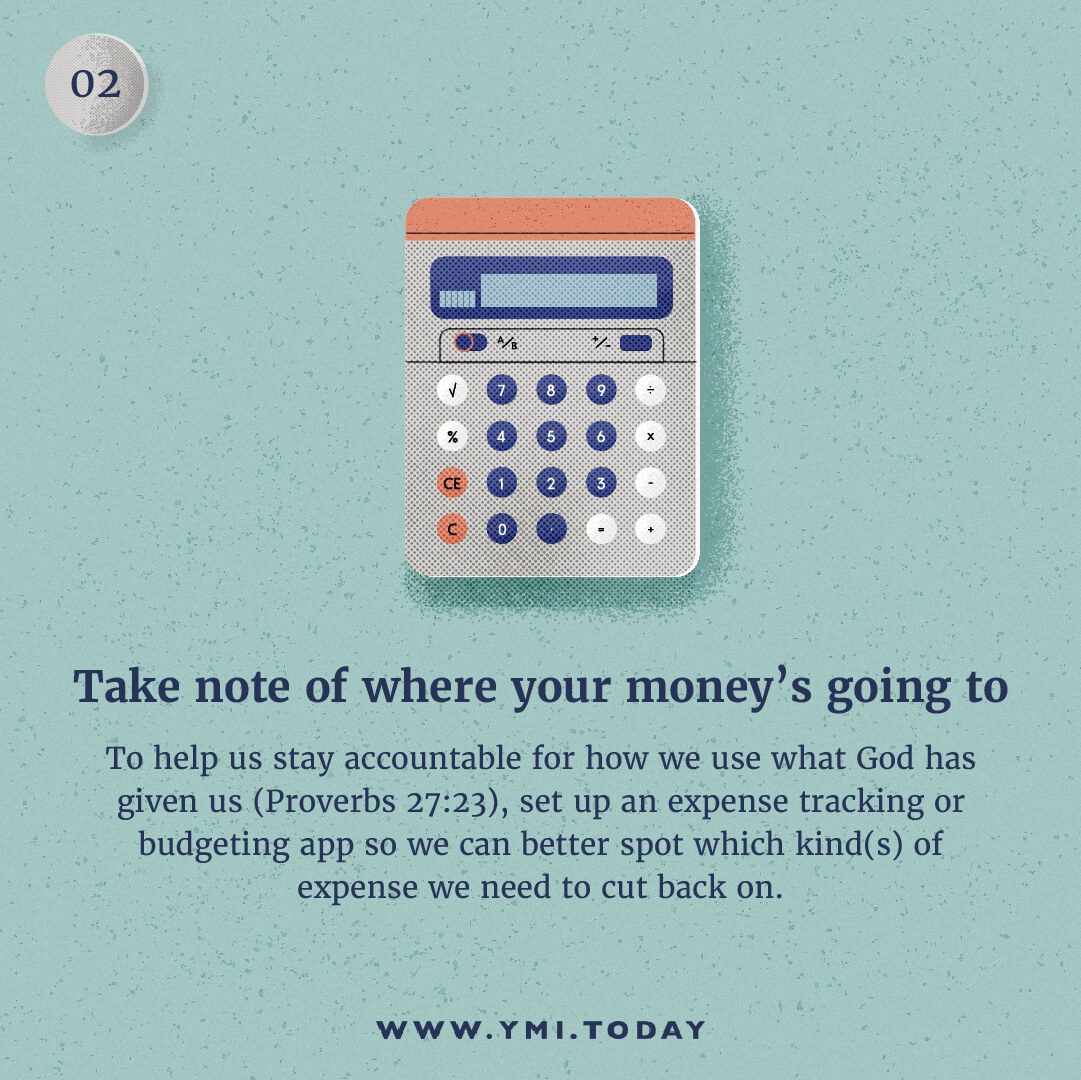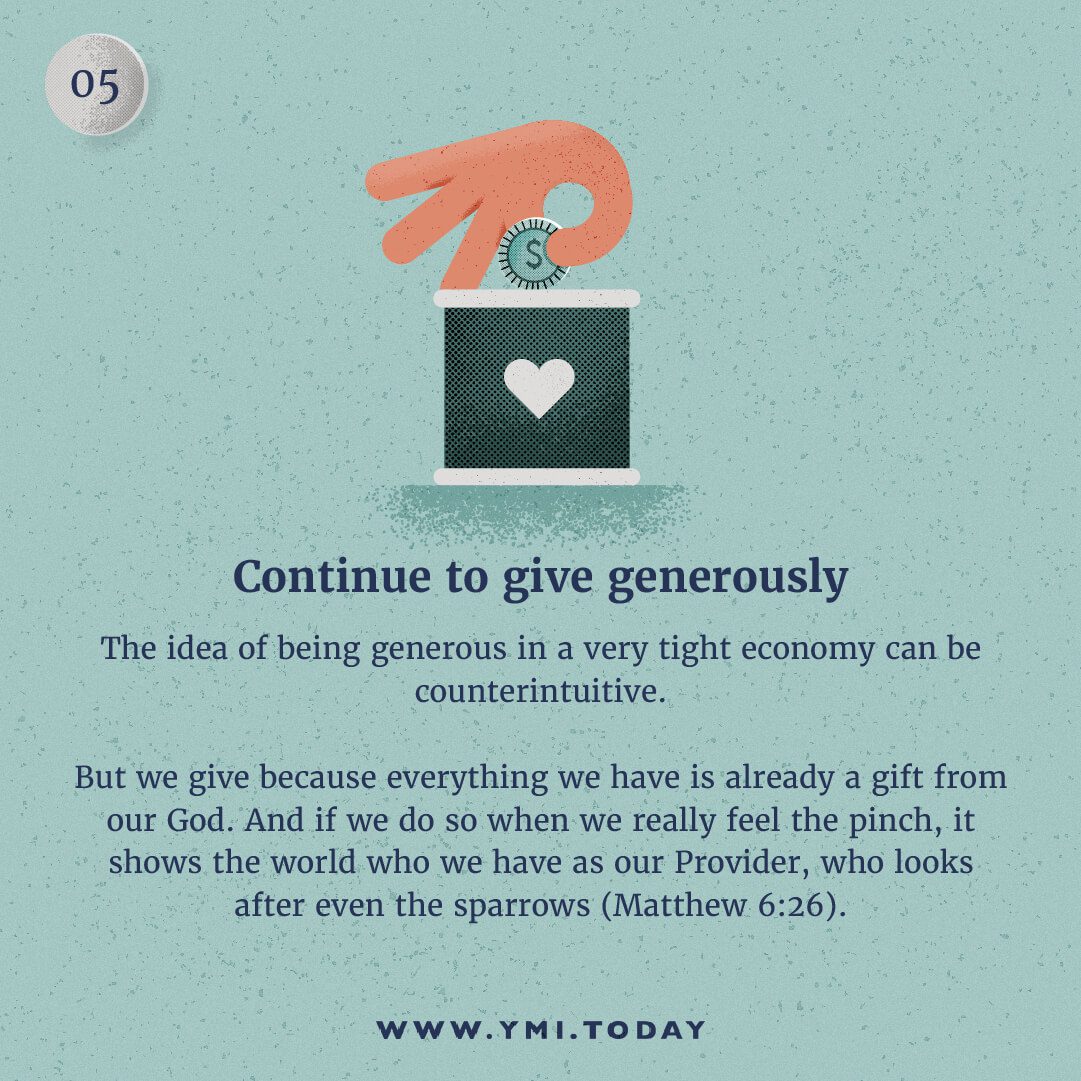5 Budgeting Tips for Tough Times
These days, it can feel like we need to withdraw from our life savings before we’re able to afford the week’s expenses. We sigh as we push our shopping cart through the supermarket aisles. Urgh, $11 for a 1kg of broccoli now, when we used to pick it up for a lot less.
Disheartened by our trip to the supermarket, we decide to pick up our favourite ice-cream from the friendly street vendor. But as we hand over our dollar coin, we are told the price has gone up by $0.40 (what a blow!). And while other restaurants may not have hiked their food prices, portion sizes have shrunk or we discover that they’ve substituted ingredients.
The war in Ukraine, the shortage of raw materials, reserve banks increasing interest rates in a bid to curb inflation have all added to the pinch we feel in our wallets. The only thing that hasn’t gone up is our salary, or if it has, whatever increment we’ve gotten has been swallowed up by price hikes.
While it’s tempting to ignore what’s going on and simply hope for this bad period to blow over, it won’t do us good to keep our heads in the sand.
Stocking up food and wisely planning our budgets is opposite to the high-life that’s sold to us on social media, but Scripture commends the wise who take the time to store the necessities they need (Proverbs 21:20) and diligently plan ahead (Proverbs 21:5).
As we head into a recession, we’ve put together a few friendly tips (your piggy bank will thank you for this!) to help you steer through this tough period.

1. Shop around before buying
We’ve heard our parents say this before: “Shop around before buying”. And now that we’re able to instantly compare prices online, “shopping around” has never been easier.
Shopping for alternative brands is something we can do to keep our bills as low as possible. If your favourite brand of snacks or clothes is hiking up its price, maybe it’s now time to switch to another brand, which might be cheaper but still good!
Here’s another tip: Don’t browse sales without a shopping list. Having a shopping list ready (for things you actually need or could use), then waiting for the sales to buy them will help prevent impulse buying.

2. Take note of where your money’s going to
The idea of watching how we spend our money is hardly exciting, but it helps us see where our precious resources are trickling to.
Proverbs 27:23 says we’re to “know well the condition of our flocks and give attention to our herds”. This means we’re accountable for how we use what God has given us, and that includes our finances.
If the idea of manually going through your bank statements feels overwhelming, don’t worry! Most banks do offer an expense tracking report/service, and there are also plenty of expense tracking/budgeting apps you can set up to track your spending.
Doing this helps categorise your expenses so you can easily spot which particular category you’ll need to cut back on.

3. Grow what you have
Maybe you’ve switched to alternative brands and made a note of your expenditures, but it still feels like your savings have only grown marginally.
Now’s a good time to see where we can place our money that’ll give us some return.
As a start, manage your cash savings wisely by placing it where it earns interest (e.g., a bank’s high-interest savings account is better than a standard account with almost no interest).
Consider starting a regular investing plan. These days, you can find passive investing products that allow monthly deposit plans without locking all of your money in.
Looking at where or what to invest in requires wisdom and a lot of research. As Scripture says, it’s not good for a person to be without knowledge, and he who hurries his footsteps errs (Proverbs 19:2).
When it comes to financial investments, let’s take our time to study the available options and seek wise counsel from people who have expertise in this area and are people of integrity. And remember, if the scheme sounds too good to be true, then it probably is.

4.Find inexpensive ways to have fun
Even though we’ve had to give up our favourite bubble tea or iced coffee (or both!), we can still find ways to have fun without sending our bank account into a state of shock.
Not every activity has to be expensive–we can go to the park or the nearest beach/pool for a swim, gather at someone’s house for a homemade coffee, or if really stuck for ideas, why not search on Google for fun free things you can do in your neighbourhood (you’d be surprised at what pops up!).
We’ve gotten used to thinking that we have to spend to enjoy ourselves, but we can learn to be creative and explore ways to have fun without having to shell out a lot every time. Above all, quality time spent with friends and family is priceless.

5. Continue to give generously
The idea of being generous in a very tight economy can be counterintuitive. It can feel like a stretch to think about donating to the food bank when we don’t even get to eat what we like.
Being generous even when times are tight is a sure test of our faith, and when we continue to give when we really feel the pinch, it shows the world who we have as our Provider, who looks after even the lilies and the sparrows (Matthew 6:26).
Start by looking around us to see if there’s anyone within our circle we could help. It could be the single parent struggling to clothe her kids, the neighbour who is now down to a one-income household, or the graduate desperate for a full-time job.
Generosity could look like offering a pile of good, quality second-hand clothes to the single parent, or getting supermarket vouchers for the neighbour and the graduate, so they don’t have to worry about putting food on the table.
When we give, it’s important for us not to view it as an “investment”, thinking if we give this much, God will “bless us tenfold”. We give because everything we have is already a gift from our God (Psalm 24:1).
Now here’s the final tip! Starting new habits to help us better manage our finances will take time–so don’t feel like you have to rush out and do all of the above in one go. Start small by picking one point you’d like to concentrate on and go from there.
And as we continue to cope with the uncertainty of the recession, there’ll be times where we’ll find ourselves sinking in worry over unpaid bills, overwhelmed by all the bad news, or even a little green-eyed when we see our friends’ new house or carefree travels.
But when these thoughts and feelings creep in, we can pray for peace (2 Thessalonians 3:16) and contentment (1 Timothy 6:6-8), and hold on to the right perspective: God provides for us (Hebrews 13:5), and is the Good Shepherd who delights in giving His children His Kingdom (Luke 12:32).










Leave a Reply
Want to join the discussion?Feel free to contribute!